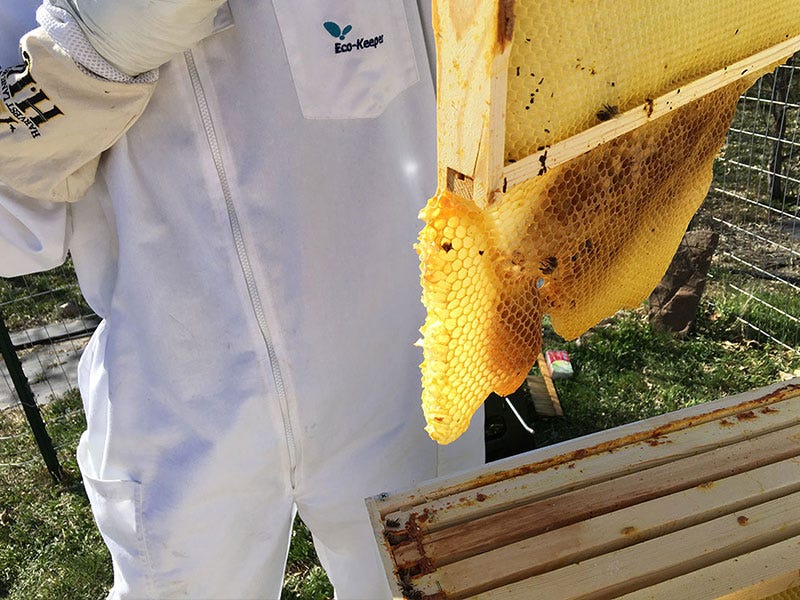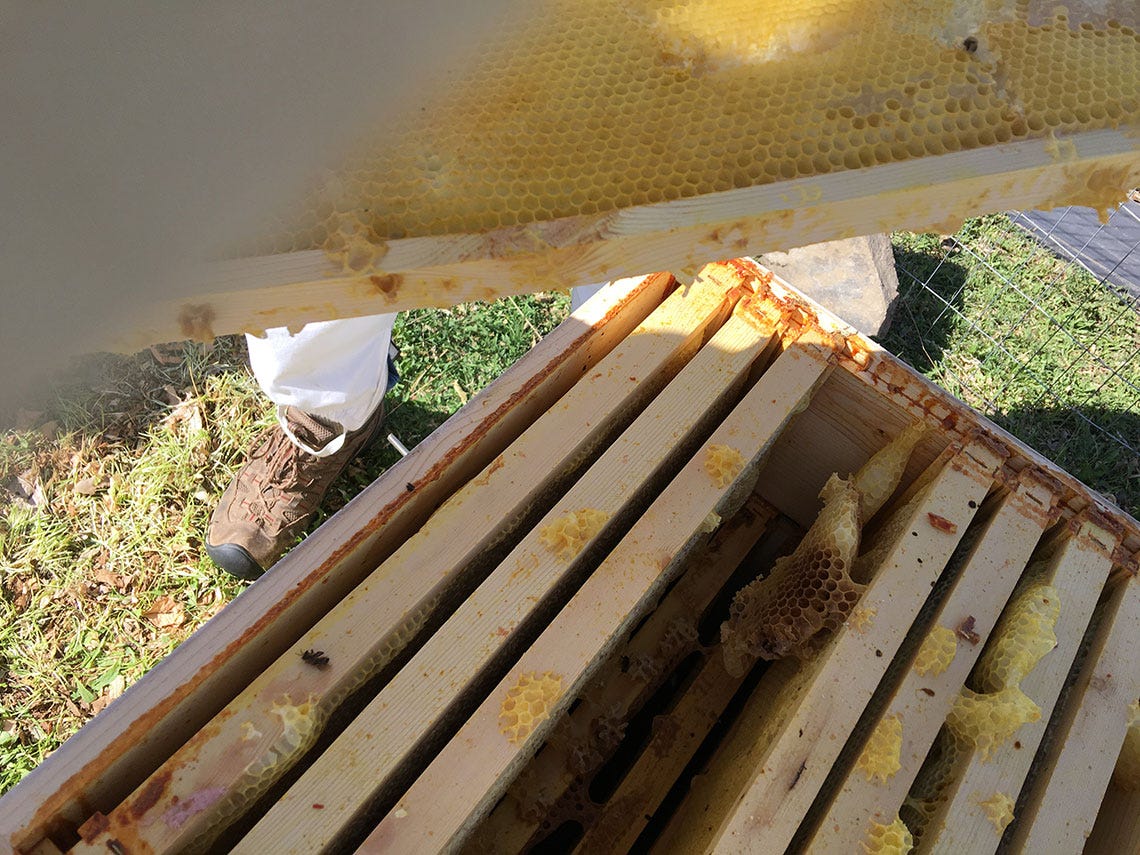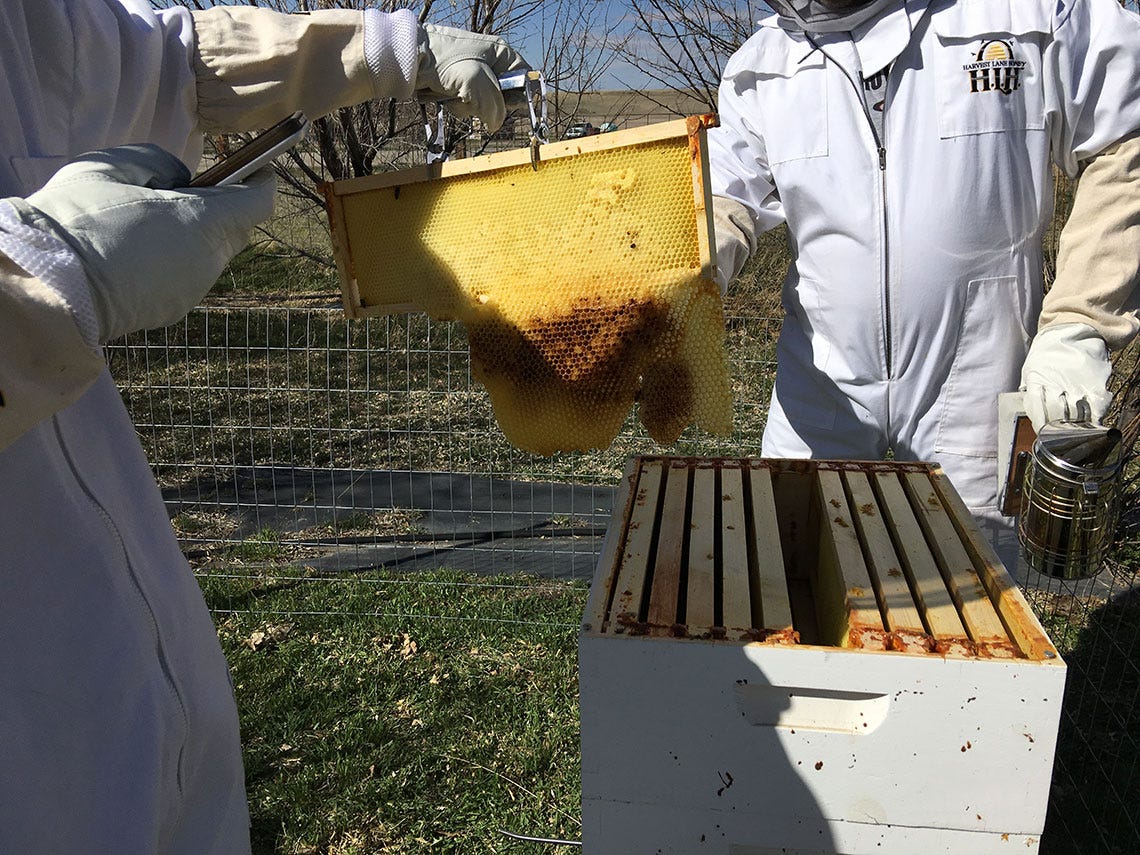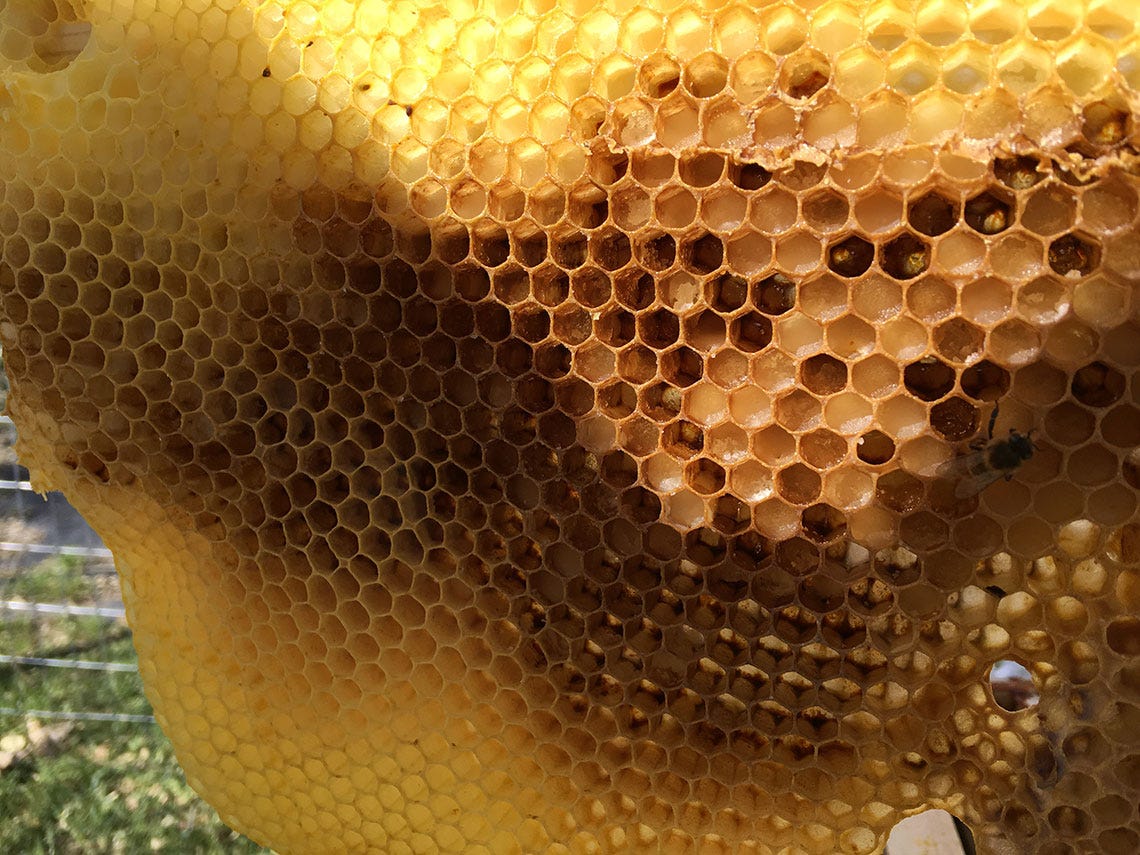Beekeeping: Sophomore Season


When we started this bee project last year, it was with a mind to really get into the product lines and experience what it was to be a beekeeper. For the Homestead Honey hive last year, it was a productive year, we were able harvest 25 pounds of honey (we've got everything you need to get started beekeeping online here).

The hive check is the last step in a beekeeper's first season- to see if your colony survived winter, to see if you still had bees to work with in the second year. With Mr. Roger's statement to expect 50% hive failure during winter, we were a little trepidatious especially considering we opted to take the hands-off approach over winter and left an entire box of honey for the bees to eat no sugar water or additives, just natural wintering of the hive.
When we went out to check the hive, we cracked the propolis seal, and we found our bees and the queen, already laying eggs. It was a good sign, but there were some things we saw that everyone thinking about beekeeping should be aware of:
- We found uniforms of white matter along the bottom board of the hives at first we thought these could be mites or some other indication of hive health- but after careful inspection, we found out that those lines of debris were actually the remains of the "uncapping" process the bees do during winter when they are feeding. So if you see that debris when you check your hive after winter don't panic. It may just be a sign of a healthy hive!
- Another take away from our over-winter hive check: replace the boards you take off in the same position they were in all winter. Why? Imagine you are a bee in a bee apartment building you've learned where the stairs are, the rooms, the exits now imagine someone cracks open the building and puts the upper levels of your apartment building on backwards. When you reverse the boxes, it's called "checker boarding" and could place undue stress on your bees, and right after winter when the hive population is small, that's something you want to avoid.

Stay tuned for more bee updates as we get into the season. If you have any insight or stories you think could help us or our readers, please don't hesitate to get in touch with us in the comments. We check them every day and would appreciate and stories or insight that is out there. We're learning too!
If you're looking for protective gear, click here and check out the selection we have online.
